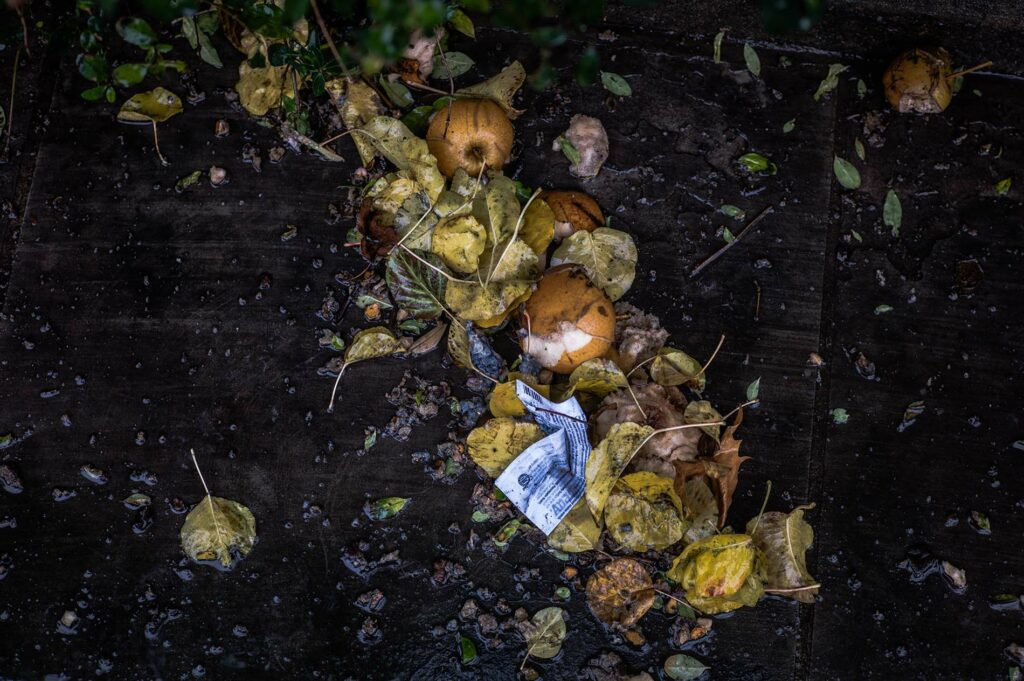“Digital technologies are not at all ecological in themselves,” rightly asserts Victor Petit in the Regional and Urban Business Review (2017). Therefore, is there not something paradoxical in associating digital technologies and the sustainable economy? To overcome this paradox, we must return to the essence of digital: it is only a means, a tool. We can choose not to be subjected to its potential threats, but we can, and even must, seize the opportunity it represents to respond to the social and ecological challenges we face. The fight against food waste is a perfect example.
The Digital and Sustainable Economies: an antithesis?
In its manifesto, the WWF defines the sustainable economy as: “one that is resilient and provides a good quality of life for everyone. It stays within the limits of the planet.”
However, the explosion of ICT (information and communication technologies) since the beginning of the “Third Industrial Revolution” (J. Rifkin) is undeniably accompanied by harmful social and environmental effects. The uberization or even destruction of certain jobs, over and fast consumption motivated by online business, an increase in waste and greenhouse gas emissions linked to digital tools that are not very recyclable and energy consuming… all this seems to make it difficult for the digital and sustainable economies to meet. How can we overcome this paradox?
The Sustainable Economy gives a goal to digitalization.
In Transitions², researcher Daniel Kaplan suggests a way out of this paradox:
Digital proposes a path to ecological transition, which proposes a goal for digital transition.
Daniel Kaplan
This takes on its full meaning regarding the etymology of the word “digital”, which comes from the Latin digitalis, meaning “as thick as a finger”. Like the finger of a hand, the digital is a tool at our disposal. And its potentialities are immense. Therefore, why not put it at the service of a sustainable economy?
Digital is an essential ally of social entrepreneurs.
Social entrepreneurs have already understood the potential of digitalization. It accelerates the collaborative economy: shared mobilities (Getaround, ex-Drivy), home help (Lulu in my street), dematerialized donations (microDON), distance learning and training (Time2start). Digital technology is also associated with high-tech applications: Big Data to assess the impacts of climate change or calculate the carbon footprint of economic players, cryptocurrency to encourage the creation of renewable energies, drones to help farmers better map their plots of land and assess their real water needs…
It would be too long to cite all the initiatives led by social entrepreneurs that are emerging and have made it their mission to use digital to respond to the ecological and social challenges we are facing. This is also the mission of our startup CodaBene, which has been acquired by Too Good To Go.
What if we could effectively fight against food waste thanks to mobile applications?
- 1/3 of the world’s food production is lost or wasted.
- The cost of food waste in Europe amounts to 143 billion euros annually.
- Every French person throws away 20kg of food per year.
These figures are revolting. Revolting from an ethical point of view, first. In a world where 800 million people suffer from hunger, and where the population is growing, no food should be wasted. Second, from an ecological point of view: when food is thrown away, all the resources needed to produce it are wasted. Thus, the 3.3 Gt of CO2 generated by food waste makes it the third largest polluter in the world after China and the United States, and the volume of water used for the corresponding production is equivalent to three times the capacity of Lake Geneva.
Finally, from an economic point of view: food waste is a loss of income for all the players in the food chain. It weighs on household budgets, as well as on the income statements of mass retail chains. In France, food stores throw away the equivalent of 2 billions euros worth of merchandise every year, mainly due to expiration. Today, however, in-store teams have no tools to manage expiration dates. Date control relies solely on manual and visual actions. The result: poor expiry date tracking and significant waste.
Faced with this situation, and convinced that digital technology can help us, I co-founded CodaBene, a social and solidarity economy startup that helps retailers reduce food waste with digital tools. We developed a first mobile application, called DLC Memo, which is present in about 50 stores in France.
After a one-time inventory conducted at the start of the partnership, store employees use the mobile app to receive daily notifications with the shortlist of products to check. This allows them to then apply discount labels to the products that are close to expiration or send them to charities.
And it is already making a difference: these stores waste less and have seen donations to food associations increase in quantity and quality. This year, we saved 200,000 meals! To strengthen our impact, we are starting to go international and are looking for country managers in other European countries ready to embark on our social entrepreneurship adventure. This project makes even more sense in the context of the current crisis, which has seen the number of food bank beneficiaries rise sharply.
CodaBene is supported by ESCP’s startup incubator, the Blue Factory.
Feature photo by Del Barrett on Unsplash.
